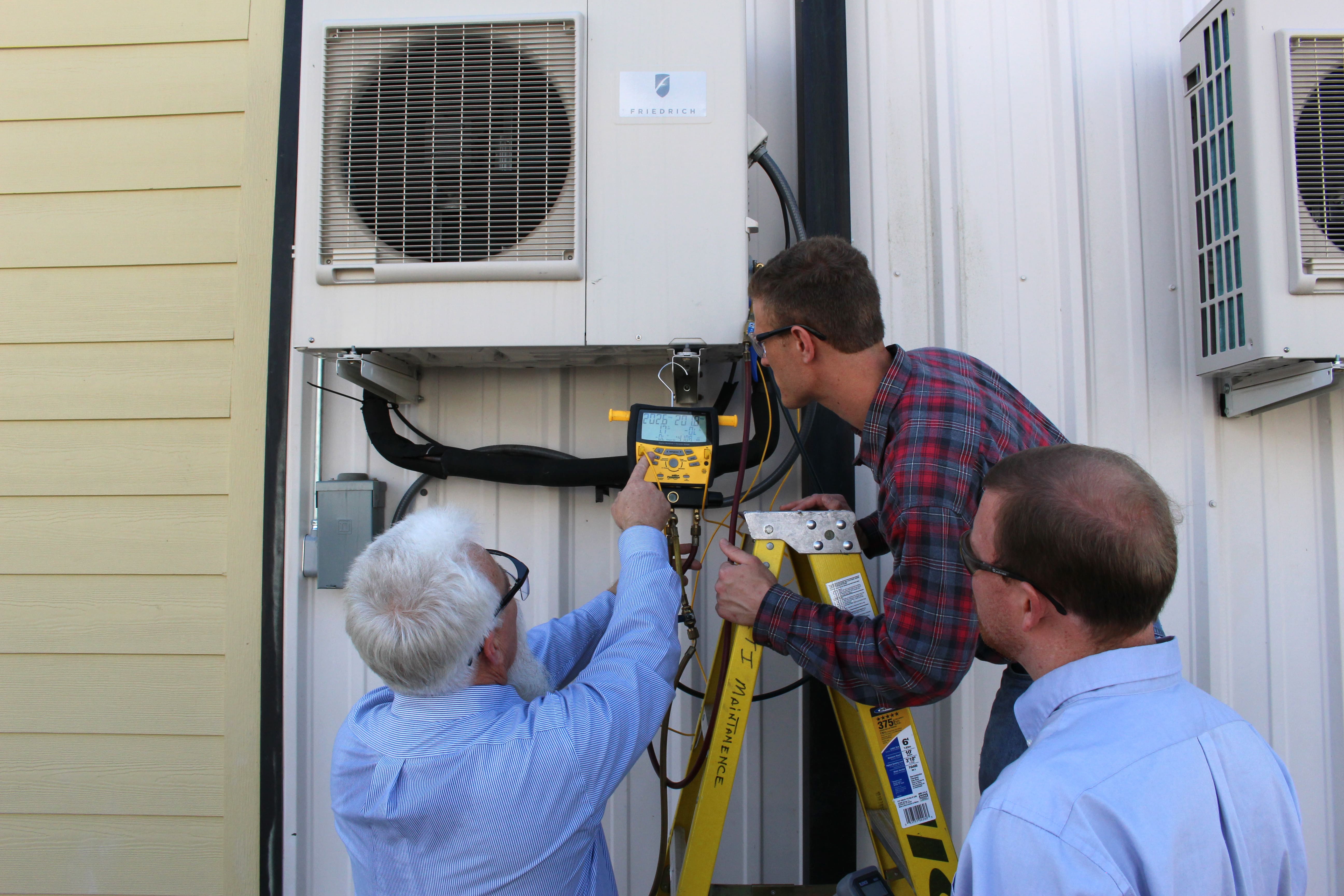At an air conditioning repair school, you’ll gain extensive knowledge in the repair, installation, and maintenance of air conditioning units. When you first get started in the industry, it’s likely that the majority of the jobs you work on will be residential ones. Knowing some of the most common residential air conditioning emergencies can offer you some insight into what you’ll learn at AC service school, as well as give you an idea of what you’ll be dealing with once you’re out in the field.
Here are three of the most common air conditioning faults that you can expect to see once you’ve completed your training.
Learn About Low Refrigerant Problems at AC Service School
 The refrigerant gas is one of the key elements in any air conditioning system. Without the right type of gas and the right amount of gas in a system, a unit won’t be able to cool properly, and will usually freeze around the evaporator coil. This problem usually presents itself when a homeowner complains that their air conditioner is not moving enough air, or when the air is not as cold as it once was, regardless of the thermostat settings.
The refrigerant gas is one of the key elements in any air conditioning system. Without the right type of gas and the right amount of gas in a system, a unit won’t be able to cool properly, and will usually freeze around the evaporator coil. This problem usually presents itself when a homeowner complains that their air conditioner is not moving enough air, or when the air is not as cold as it once was, regardless of the thermostat settings.
Identifying this problem is usually simple once other points of failure are ruled out, and with your air conditioning repair school training, you’ll be able to safely handle gas and refill any system. The gas in a system can deplete over time, or it may deplete prematurely if there is an obvious or slow leak. With the right training, you’ll be able to remedy this air conditioning emergency and get any system back up and running at peak efficiency.
Inefficient Running Due to Poor Air Flow
Another problem that causes weak air output or even warm air, is poor airflow in an air conditioning system. This can be caused by a number of factors, including improper installation, clogged ducts, or dirty air filters. Your training at the AC service school will give you complete knowledge of basic and complex air conditioning systems so that you can perform the right troubleshooting to identify where an airflow problem originates from.
This type of air conditioning emergency can be remedied by removing a blockage, cleaning an air filter, or addressing any problems that are left from an initial installation. Learning about poor airflow will also give you a strong appreciation for why it is important to properly design and install any air conditioning system, even in the smallest home.
Faulty Wiring
 If the wiring for an air conditioner is poorly installed, or if it is damaged during the life of the air conditioning unit, then this could lead to a number of potential air conditioning emergencies.
If the wiring for an air conditioner is poorly installed, or if it is damaged during the life of the air conditioning unit, then this could lead to a number of potential air conditioning emergencies.
The wiring controls everything from the outdoor unit to the indoor air movers, and even the thermostat. Faulty wiring could cause an air conditioner to become unresponsive, it could become stuck on a single setting, or it may perform intermittently and not at the temperatures that are set by the user.
AC service school includes electrical training that will allow you to identify and troubleshoot any electric circuit within an air conditioner. You’ll also gain specific knowledge relating to air conditioner design, and how thermostats and control panels work. A wiring problem can be extremely frustrating and distressing for owners, but can often be fixed with simple troubleshooting and electrical repairs. If you like the challenge that electrical circuits can offer, then you’ll definitely be interested in taking an Associate of Occupational Studies (AOS) Degree program at an air conditioning repair school.
Learn with the Best at ITI Technical College
If you’re ready to take a step toward your dream career, then it’s time to enroll in AC repair training at ITI. Our two-year degree program will prepare you for work in the field, giving you the knowledge and HVAC certification that you need to succeed.
Talk to us today to learn about enrollment in our upcoming programs.
For more information about graduation rates, the median debt of students who completed the program, and other important information, please visit our website: https://iticollege.edu/disclosures/

